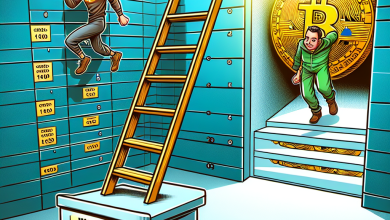Loss of rent: How owners should react when tenants no longer pay
Life these days is expensive – that becomes clear at the latest in the supermarket, when cheese, paprika and flour cost almost 50 percent more than a year ago. That alone wouldn’t be so bad if it weren’t for the high electricity and heating costs and skyrocketing rents in many places that people in Germany are currently struggling with: On average, households had to spend more than a quarter of their net income on rent while it was in low-income households it was even up to 40 percent. After all, this affects more than three million households or around 16 percent of all tenants in Germany.
For some people, it is likely to become increasingly difficult to meet their financial obligations. This also worries owners who fear that their tenants will no longer be able to pay.
Almost two-thirds of residential units in Germany are owned by private individuals. Many of these private small landlords only have a small number of apartments and are dependent on rental income. If there are rent arrears, the economic consequences are often serious and, in extreme cases, can even lead to a failure in real estate financing, because the landlord’s loan is often dependent on the rental income.
So how do I protect myself as a landlord if the rent is actually missing from the account? What should I do first and how can I tell if it’s just a one-off slip or if my tenant can’t pay permanently? From the first preventive measures to clearing the apartment, here is the emergency kit for landlords:
Better safe than sorry
In order to keep the risk of loss of rent as small as possible from the outset, it is essential to carefully examine prospective tenants before signing the contract. Because: Once the defaulting tenant is in the apartment, it can take months to get him out again. First, an eviction order must be issued against the tenant, which may even have to be enforced by a bailiff. Only then can the apartment be rented again. This not only costs a lot of time, but also money. The owner could invest this money in other things.
A self-disclosure from the potential tenant, in which he discloses his employment and income situation, is therefore the first security measure and should be requested in any case.
In addition, it is now common to request a Schufa self-assessment and proof of the last three months’ salary. Strictly speaking, the request for a Schufa information is legally sensitive, but in practice it is so common that most tenants accept it.
It is also important to have an identification document presented so that the prospective tenant does not rent under a false name. For additional security, a certificate of freedom from rent from the previous landlord can also be requested. Here you can see whether the tenant has always met his payment obligations on time and in full.
on the trail of scammers
While these instruments mainly check the tenant’s creditworthiness, they can unfortunately also be counterfeited. This is particularly common among people who move from apartment to apartment without paying rent or utilities, colloquially known as rental nomads.
Unlike tenants who default on payments due to illness, high living costs or unemployment, Mietnomaden have no intention of paying their rent from the start. With serious-looking clothing and a chic job title, they pretend to be the perfect tenants.
There are no reliable statistics regarding the number of rental nomads. Some consider the concern about rental nomads to be exaggerated. However, a study by the University of Bielefeld identified almost 400 actually verifiable cases a few years ago. The resulting damage was between 1000 euros and 5000 euros. In individual cases even up to 25,000 euros.
In addition to the usual Schufa information, the rent-free certificate and the submission of salary slips, it can be worth taking a look at tenant credit agencies such as the German Tenant Database (DEMDA) or the landlord protection index (VSK). In addition to hard negative features such as credit information, these databases also offer information on medium and soft negative features such as debt collection procedures. In this way, higher hit rates are achieved than with a pure credit check.
You should stay away from free lists of alleged rental nomads that are circulating on the Internet. Such online pillory are illegal in Germany for data protection reasons and can easily be misused.
Another useful tactic against rental nomads is to require a deposit, as they are often unwilling or unable to pay a single penny. It is therefore advisable not to hand over the apartment key until the deposit has been paid in full.






